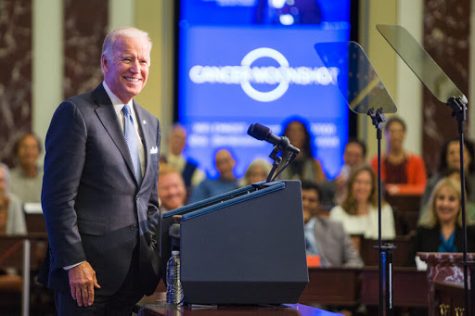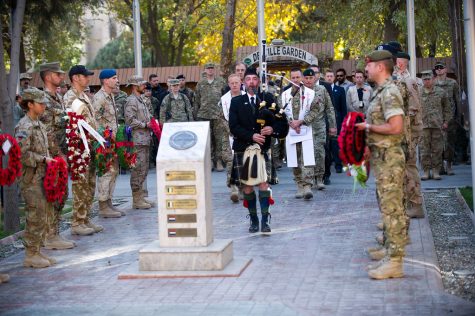New citizenship test will create more responsible citizens
May 12, 2016
Citizenship is precious, particularly American citizenship. Those of us born and raised in this country are beyond fortunate to be provided with the liberties outlined by the American Constitution. Personally, I cannot imagine the insurmountable stress associated with the naturalization process; there is so much on the line.
Not only is one vying for individual liberties when applying for citizenship, but she is also searching to secure the potential for her children to prosper as well. As a child, I often wondered why native-born Americans never needed to pass a citizenship test to prove they are educated about the mechanics of their own government; I felt it unfair that immigrating individuals were required to know more about my government than I did at that time.
My scant comprehension of government made me feel guilty. How come I was allowed to possess liberties that others had to stressfully test for to obtain in America and dangerously petition for in other areas of the world?
Ultimately, I came to the conclusion that a citizenship test composed for native-born citizens would be a beneficial implementation into society, but effectively executing this task would have been incredibly difficult. So, I left this concept alone, not aware that I would bump into it again in the future.
This year, the AASD and the state of Wisconsin have adjusted graduation requirements to include passing, with at least a C, a model citizenship exam, with the intention that it be taken during the Freshman Civics course. This year’s seniors do not have to try to find time prior to graduation to take this exam, but 2017 graduates and beyond will have to complete this requirement.
Initially, I was taken aback at this new request made…primarily because it was another exam to add to the books. This exam is quite a great addition to our graduation requirements, though. Taking it junior year during my APUSH class, I could not have been in a better position to complete the exam.
Granted, Civics did cover some of the more trivial information inquired about within the test, such as the length of time contained in one presidential term, but the exam was much easier than I had anticipated; it encompassed the very basics of U.S. government and geography. Passing the exam with a C is more manageable than you may be led to believe.
Ultimately, we should all be thankful the AASD is requiring its students to complete this task prior to graduation. At least a basic comprehension of government should be mandatory for all citizens of the U.S.; ignorance can be the root of many illogical decisions. Ensuring students pass this exam will hopefully result in more educated and productive individuals that will make positive impacts on the world.












Harrison • May 22, 2016 at 4:28 pm
Hello, my name is Harrison, I am a journalist for the Bird Eye News Journalism class at Forrest Bird Charter School in Sandpoint, Idaho. We really like your website and we saw that you have many interesting stories on your website. If you are interested in starting a dialogue between our two journalism classes for educational purposes please email us back. Thanks.